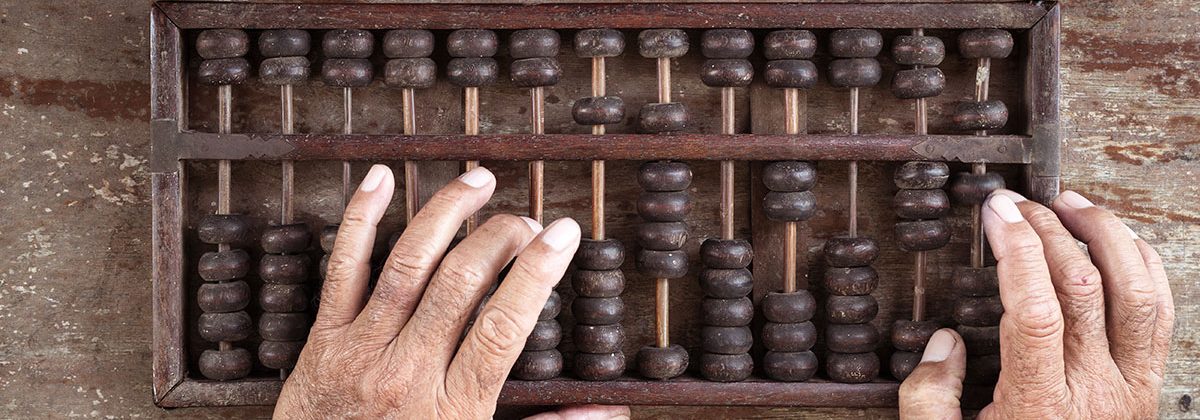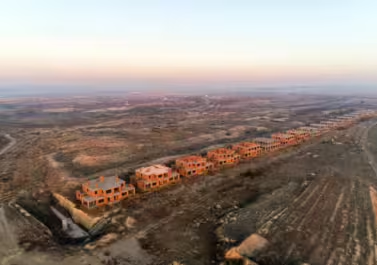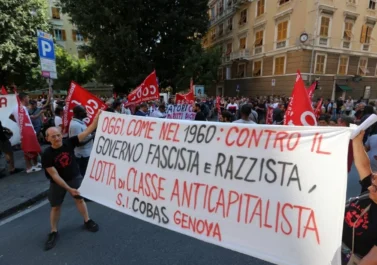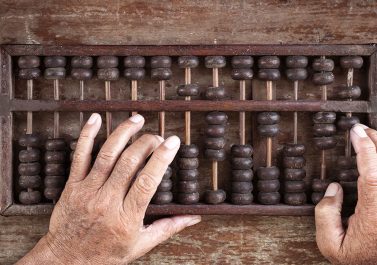
We document these notes from a recent discussion event. We appreciate that the international discussion about transition is widening and becoming more concrete. When it comes to the recuperated factories in Argentina it would be good to sharpen the political criteria. Which factories are still engaged in a wider political movement for a general social transformation and why? Which factories refuse ownership and ‘market responsibility’ and push for guaranteed wages from the state? Which factories opt for pay increases for ‘their workforce’ and which factories rather opt for employing additional workers?
Intervention by Azzellini
The only revolution Marx knew of was the Paris Commune. He defined communism as a network of cooperatives. The Paris Commune turned against the state.
In Germany, on the other hand, most councils during the 1918 revolution were tied to their parties, either the SPD or the KPD. That’s why they let the SPD call the councils off or curb their influence. Council democracy is a non-representative democracy in which you are only a spokesperson. The actual decisions are made in the assemblies. Means of production would neither be private nor state-owned.
Capitalist domination in general is based on the separation of the economic and political spheres. The Commune is not separate from society, in it the separation between politics and economics, between the social and economic spheres and the separation between manual and intellectual labour is abolished. These principles are visible in the Paris Commune, in Chiapas, in the settlements of the freed slaves, in African socialism. Walther Rodney said that there is no de-colonisation without workers’ control over the means of production. The Guerrero in Mexico have an alternative justice system that is geared towards social re-integration and that works well. After the “resocialisation programme”, people are offered land and most of them stay.
In 2024 there are 430 recuperated factories in Argentina, comprising 15,000 workers (shipyard, Covidtest production plants etc.). There are 30 in Brazil and 30 in Uruguay. There was a massive wave in Argentina in the 1.5 years after December 2001 when 200 factories were recuperated. The companies are collectively owned – i.e. as long as I work there, I have a say in the decisions – but nobody owns shares of the factories. The recuperated factories that produce for the domestic market – and where the time between production and sale is short – have an advantage (as the factories do not receive loans from banks). The factories are networked, 20% of their economic activity is carried out with other recuperated factories. The process of legalisation takes 1 to 3 years, shop-floor democracy prevails.
Workers restart production out of a crisis, without access to credit. The machines are often taken away, the years until legalisation are hard, but the families help each other. The labour hierarchies that existed before are obsolete. Once production has started, they are not reintroduced. There are fewer conflicts after the 2,3 years of occupation, the workforce is better at resolving conflicts. [1] Milei wants to evict those factories, but in Argentina this is not a new problem. Another major issue is that electricity costs have tripled. In Uruguay, there has been a wave of factory occupations parallel to Argentina. In Brazil there used to be 88 recuperated factories, many have closed because of the crisis. Lula has made a change in the law that delays the bankruptcy of factories, therefore there are fewer factory takeovers by the workers.
In Venezuela there were 60-80 recuperated factories, they have all become state-owned companies. There are also some in Mexico, Colombia, France, Italy, Greece, Egypt, Tunisia. A current prominent new example is the GKN factory in Florence.
In the past, workers took over companies when they were in an offensive position as proletarian forces, e.g. at the beginning of the 20th century in Germany, after the 2nd World War in Japan, during the 1968 movement orthe waves of privatisation in the 2000s. In Argentina 2001ff, however, they emerged in a generally defensive situation, i.e. in a situation in which the majority of workers were not organised. Political consciousness therefore only emerges during the occupation. But then the takeover is more likely to be successful if individuals in the workforce are already politicised – if no one with political experience is present, the occupation will fail. At the same time if there are too many with political experience (of a certain kind – the editor), it also fails (e.g. a textile factory takeover in Istanbul 2013 – the textile factory was occupied during the Gezi protests and the Communist Party then opened a shop where the clothes were sold, the party took over the whole struggle and everything went down the drain).
In Argentina, the recuperated factories are united in two nationwide organisations, there is a magazine and an independent university institute that researches the movement. In Latin America there are two training centres, there is a Latin American wide meeting every two years and, alternately, a European meeting of the recuperated factories every two years. There is also a worldwide meeting. Networking is also desperately needed: the Euzkadi tyre factory in Mexico, for example, had bought new machines and wanted to give the old ones away to another recuperated factory, but the latter could not afford the transport costs at the time.
Intervention by the Initiative for Democratic Labour Time Accounting (IDA)
The problem is that such practices of factory takeovers will not spread just like that, it needs a situation in which it spreads explosively. How can alternative production relations be created?
The „Gruppe Internationaler Kommunisten“ [2] took the position that the factories must have planning sovereignty under workers’ control, that you need a decentralised planned economy, but you also need a higher-level planning authority.
– Planning is based on labour hours;
– Production quantities are converted into working hours;
– Production plans are made by the workers and submitted to a public accounting department;
– Calculations are based on the social average working time;
– The public accounting department checks the plans on the basis of previous years;
– Hours worked are remunerated;
– Individual labour entitles people to individual consumption, but the aim is to socialise production;
– There are public enterprises that give away their products for free;
– This leaves open the question whether there is a parallel, regional economy and in that sense a phase of either ‘co-existence’ or dual power
————————-
Dario Azzellinis Website:
http://www.workerscontrol.net/
IDA:
https://arbeitszeit.noblogs.org/
Footnotes
[1]
That relations within the recuperated factories are not entirely horizontal and without problems becomes clear in these insightful interviews with Zanon workers in Argentina
https://libcom.org/article/zanon-factory-occupation-interview-workers
[2]



